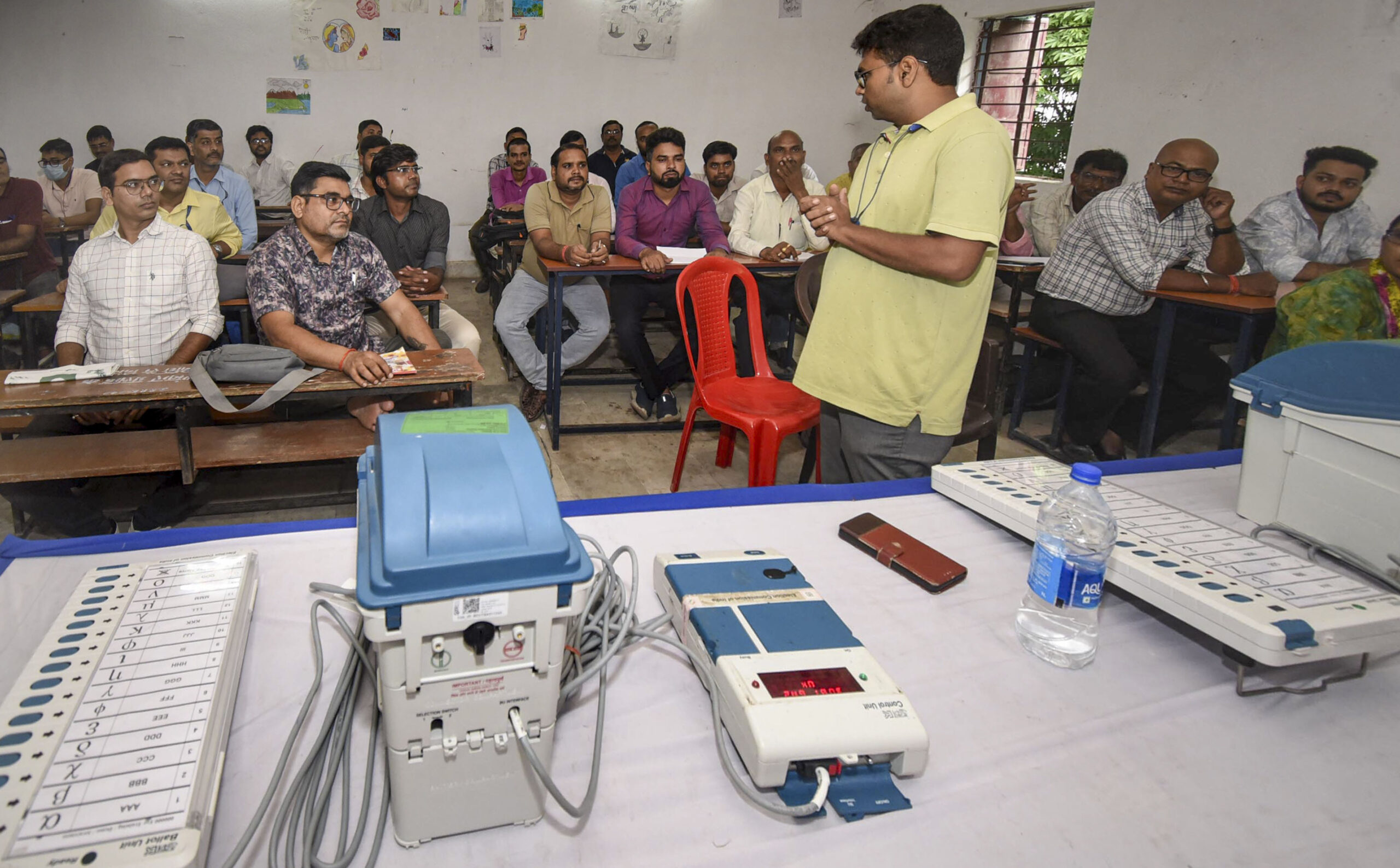Top Stories
Dynastic Influence Shapes Bihar Elections as Polls Approach

As Bihar prepares for its upcoming elections, the influence of political dynasties is evident, with many candidates being related to established politicians. The 243-member Bihar Assembly will hold elections in two phases on November 6 and November 11, with results set to be announced on November 14.
Prominent figures contesting in these elections include Tejashwi Yadav, the younger son and heir apparent of party leader Lalu Prasad, representing the Rashtriya Janata Dal (RJD) from Raghopur. Other notable candidates include Samrat Choudhary, son of former minister Shakuni Choudhary, from Tarapur, and Osama Shahab, son of the late gangster-turned-politician Mohammad Shahabuddin, from Raghunathpur.
Additionally, candidates such as Snehlata, wife of party chief Upendra Kushwaha, from Sasaram, and Nitish Mishra, son of former Chief Minister Jagannath Mishra, from Jhanjharpur, highlight the prevalence of political families in the state. Other representatives include Deepa Manjhi, daughter-in-law of Union minister Jitan Ram Manjhi, and Jagriti Thakur, granddaughter of socialist leader Karpoori Thakur.
The phenomenon of political dynasties has sparked discussion among experts regarding the implications for democracy in Bihar. According to Vidyarthi Vikas, an Assistant Professor at the A N Sinha Institute of Social Studies in Patna, the influx of dynasts into politics suggests a disregard for ideological commitments and democratic principles. He noted, “The way dynasts are entering politics shows that all political parties are least bothered about constitutional values.”
Vikas emphasized the need for public awareness, stating that low education levels among the rural population play a significant role in this trend. He referenced a recent caste survey, which revealed that only 14.71 percent of Bihar’s population has completed class 10. Vikas pointed out that this lack of political awareness allows parties to exploit voters, facilitating the entry of dynastic candidates.
The RJD’s state unit spokesperson, Mrityunjay Tiwary, echoed similar concerns, highlighting that ordinary party workers struggle to compete in a political environment increasingly influenced by glamour and financial resources. He remarked, “A simple party worker can’t think of contesting elections these days.”
The issue of funding has also emerged as a significant factor affecting the fairness of elections. Tiwary noted that the unrestrained financial power of candidates and political parties creates an uneven playing field.
In response to these concerns, Niraj Kumar, spokesperson for the Bihar BJP, argued that the party prioritizes leaders and workers who demonstrate commitment to public service. He cited Prime Minister Narendra Modi as an example of a leader who rose through the ranks based on dedication and hard work, despite coming from a humble background.
As the election dates approach, the focus on dynastic politics in Bihar raises important questions about the future of democratic representation in the state. The reliance on established political families may continue to shape the electoral landscape, affecting opportunities for new candidates and the overall political culture.
-

 World3 months ago
World3 months agoSBI Announces QIP Floor Price at ₹811.05 Per Share
-

 Lifestyle3 months ago
Lifestyle3 months agoCept Unveils ₹3.1 Crore Urban Mobility Plan for Sustainable Growth
-

 Science3 months ago
Science3 months agoNew Blood Group Discovered in South Indian Woman at Rotary Centre
-

 Sports3 months ago
Sports3 months agoBroad Advocates for Bowling Change Ahead of Final Test Against India
-

 World3 months ago
World3 months agoTorrential Rains Cause Flash Flooding in New York and New Jersey
-

 Top Stories3 months ago
Top Stories3 months agoKonkani Cultural Organisation to Host Pearl Jubilee in Abu Dhabi
-

 Science3 months ago
Science3 months agoNothing Headphone 1 Review: A Bold Contender in Audio Design
-

 Top Stories3 months ago
Top Stories3 months agoAir India Crash Investigation Highlights Boeing Fuel Switch Concerns
-

 Sports3 months ago
Sports3 months agoCristian Totti Retires at 19: Pressure of Fame Takes Toll
-

 Business3 months ago
Business3 months agoIndian Stock Market Rebounds: Sensex and Nifty Rise After Four-Day Decline
-

 Politics3 months ago
Politics3 months agoAbandoned Doberman Finds New Home After Journey to Prague
-

 Top Stories3 months ago
Top Stories3 months agoPatna Bank Manager Abhishek Varun Found Dead in Well









